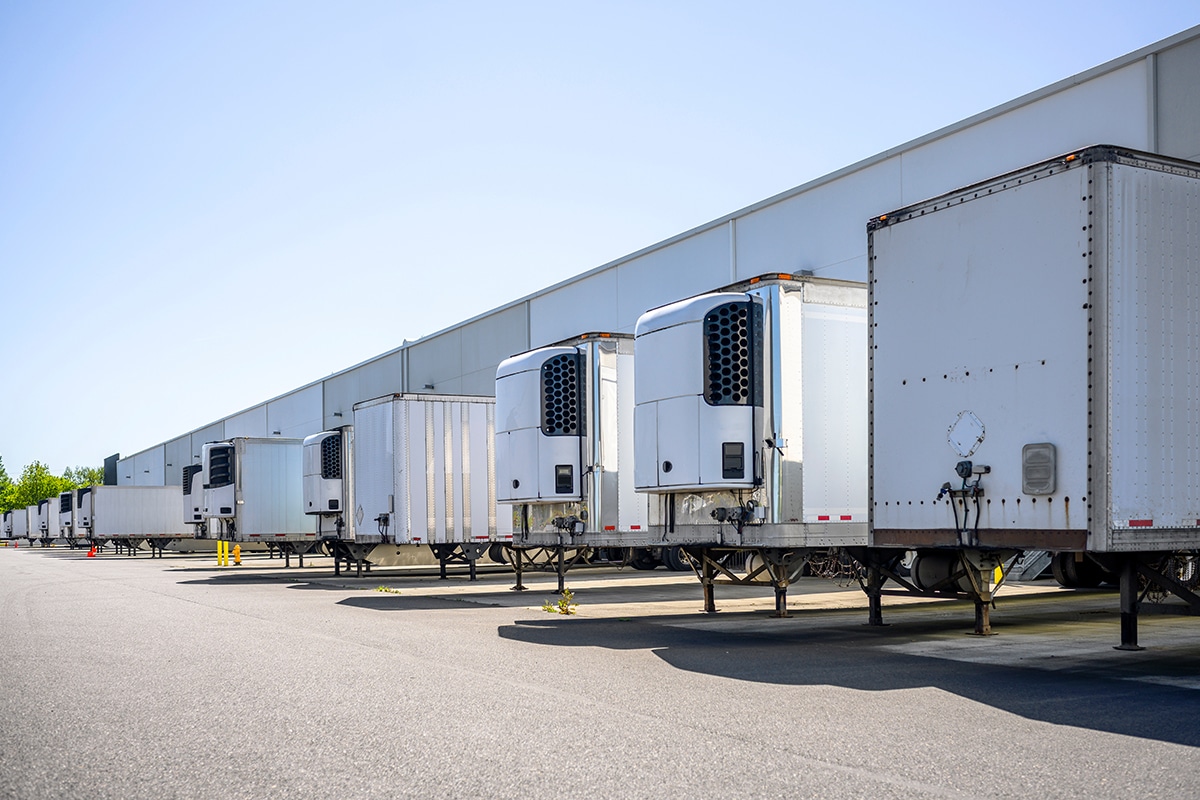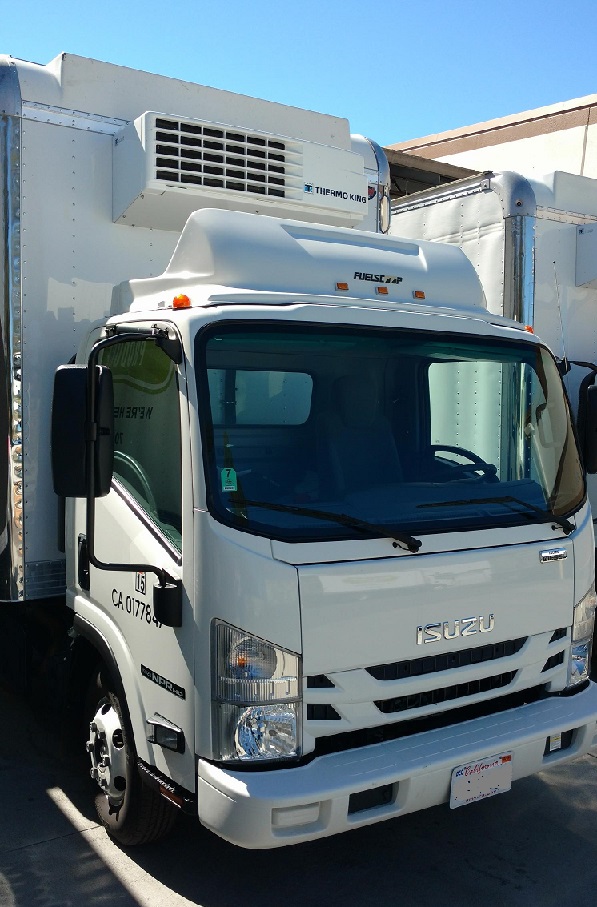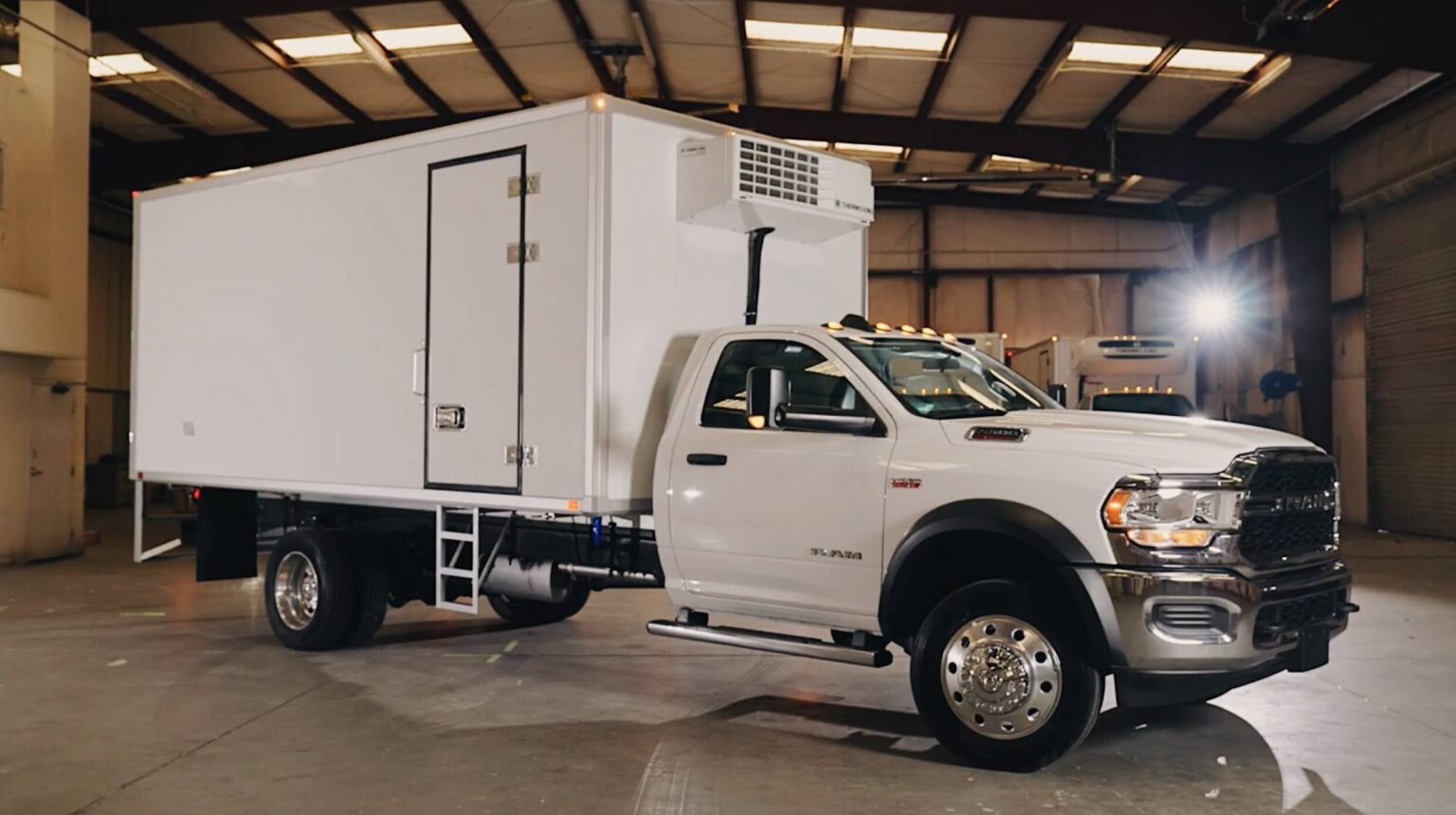Reefer Trucks Thermo King: Trusted for Temperature-Sensitive Product
Reefer Trucks Thermo King: Trusted for Temperature-Sensitive Product
Blog Article
Picking the Right Transportation Refrigeration System for Your Fleet
Picking an ideal transportation refrigeration system for your fleet is a critical decision that can substantially influence operational performance and product honesty. It demands a thorough understanding of your certain refrigeration demands, consisting of temperature level needs and distribution schedules. Numerous system kinds provide distinct benefits, yet choosing the ideal one involves more than simply technological specs; it additionally incorporates factors to consider of budget plan and future growth. As we check out these important variables, it ends up being evident that the ramifications of this selection extend far beyond operational abilities and first costs. What might these implications disclose about your fleet's long-term success?
Recognizing Your Refrigeration Needs
When choosing a transportation refrigeration system, understanding your specific refrigeration needs is vital to making sure item quality and conformity with market standards. Various factors should be thought about to identify one of the most ideal system for your procedure. These consist of the kind of products being carried, their temperature needs, and the period of transportation.
For subject to spoiling goods, such as fresh fruit and vegetables or drugs, accurate temperature control is vital. Recognizing the temperature level variety needed for each product enables the option of a system that can preserve those problems regularly. Additionally, take into consideration the frequency of distributions and the range traveled; longer journeys might require systems with boosted insulation or backup power choices to stop temperature changes.

Moreover, the ability of the refrigeration system ought to straighten with your lots size. Overwhelming an unit can result in inadequate air conditioning, while an extra-large system might be ineffective and pricey. Lastly, regulatory compliance is crucial; familiarize on your own with regional and global standards governing the transport of temperature-sensitive products. By completely analyzing these elements, you can make certain that your chosen transportation refrigeration system successfully fulfills your operational demands and maintains item stability.
Kinds of Transport Refrigeration Solution
Picking the appropriate type of transport refrigeration system is vital for making certain the risk-free transit of temperature-sensitive items. There are several systems readily available, each created to meet certain requirements and applications.
One of the most typical kinds include direct growth (DX) systems, which make use of refrigerant to take in heat and cool the cargo area efficiently. These systems are often favored for their efficiency and lower initial costs. One more option is the central refrigeration system, which offers multiple compartments or cars from a solitary compressor device. This is particularly helpful for bigger fleets calling for regular temperature control across different transport systems.
In addition, there are self-contained refrigeration units that incorporate the compressor and evaporator in one bundle. These units are perfect for smaller lorries or when area is limited. For specialized applications, such as moving drugs or perishables, cryogenic refrigeration systems may be used, employing fluid nitrogen or carbon dioxide to maintain ultra-low temperatures.
Last but not least, crossbreed refrigeration systems that combine electrical and diesel power are becoming progressively popular, supplying versatility in power use and reducing environmental effect. Recognizing these various types enables fleet drivers to make enlightened choices tailored to their certain functional demands.
Secret Functions to Consider
Exactly how can one ensure that a transport refrigeration system satisfies all operational requirements? To accomplish this, several essential functions should be very carefully reviewed. To start with, temperature level control is critical; systems need to supply specific temperature settings to accommodate various products, varying from frozen goods to perishable items.
Power effectiveness is one more important factor to consider, as it influences operational costs. Seek systems that make use of sophisticated technology, such as variable rate compressors, to enhance energy use without jeopardizing performance.
An additional function to assess is the integrity and longevity of the devices. Systems created from top notch materials and made for durability versus extreme conditions will certainly decrease upkeep expenses and downtime.
Furthermore, the convenience of maintenance and accessibility of elements can significantly affect operational performance (reefer trucks thermo king). Functions like modular designs or remote tracking capabilities can enhance service processes
Last but not least, compatibility with existing fleet administration software can improve monitoring and reporting processes. By concentrating on these essential attributes, fleet operators can guarantee that their transportation refrigeration systems not just fulfill existing needs however also adjust to future requirements.

Budgeting for Refrigeration Solutions
Evaluating crucial features of transportation refrigeration systems is just one component of making sure operational effectiveness; budgeting for advice refrigeration solutions is just as crucial. A well-structured budget plan not only encompasses the first acquisition cost however also considers lasting functional expenses, including power usage, maintenance, and possible fixing requirements.
When establishing a budget, fleet supervisors must first assess the complete price of ownership (TCO) This includes not only the procurement expenses but also recurring costs associated with sustain efficiency and the longevity of the refrigeration systems. Selecting systems with higher energy performance scores might produce substantial cost savings with time, alleviating upfront expenses.
Moreover, fleet operators need to represent possible scalability. As businesses expand, the refrigeration requires may alter, demanding upgrades or extra devices. Planning for these future costs can prevent monetary pressure.
Funding choices can additionally play an important duty in budgeting. Leasing, car loans, or straight-out acquisitions each have distinct financial ramifications, and recognizing these can help in making an informed decision. Eventually, a thorough go to these guys budget that takes into consideration both prompt and future requirements makes sure that transportation refrigeration systems add positively to the overall operational effectiveness of the fleet.
Upkeep and Assistance Alternatives
In the realm of transport refrigeration systems, effective upkeep and assistance alternatives are vital for guaranteeing optimal performance and longevity. Normal upkeep is vital to avoid malfunctions and preserve the stability of temperature-sensitive freight. It is a good idea to develop a routine assessment routine with qualified specialists who can carry out necessary checks and repair work on refrigeration systems.
Support options should consist of a durable solution contract, covering both routine maintenance and emergency situation fixings. This makes sure that your fleet has access to prompt assistance, minimizing downtime and keeping functional effectiveness. Numerous manufacturers supply thorough support packages that consist of training for your team, enabling them to perform standard troubleshooting and maintenance jobs.
In addition, making use of remote tracking technology can boost your maintenance strategy - thermo king transport refrigeration. These systems give real-time data on temperature level and performance, enabling aggressive steps prior to problems escalate. Buying training and technology not just boosts your fleet's integrity but additionally extends the life-span of your refrigeration systems
Eventually, a critical method to upkeep and support will certainly protect your financial investment and ensure that your transportation refrigeration systems operate at peak effectiveness, supplying consistent outcomes for your business.

Conclusion
In conclusion, selecting the appropriate transportation refrigeration system for a fleet demands a detailed analysis of details refrigeration demands, system kinds, and vital functions. Prioritizing operational performance, power usage, and maintenance considerations is essential for ensuring integrity. In addition, cautious budgeting and planning for future scalability will contribute to the lasting success of the refrigeration approach. Eventually, a knowledgeable decision will certainly boost product integrity and maximize general logistics operations within the fleet.
Selecting a proper transport refrigeration system for your fleet is a critical decision that can why not look here considerably impact functional efficiency and item integrity.When picking a transport refrigeration system, recognizing your particular refrigeration demands is critical to ensuring item high quality and conformity with industry criteria. By completely analyzing these elements, you can make sure that your selected transportation refrigeration system efficiently satisfies your operational requirements and keeps product stability.
Inevitably, a comprehensive budget plan that takes into consideration both prompt and future requirements makes certain that transport refrigeration systems contribute positively to the general functional efficiency of the fleet.
In conclusion, choosing the proper transportation refrigeration system for a fleet demands an extensive examination of details refrigeration demands, system types, and important functions.
Report this page